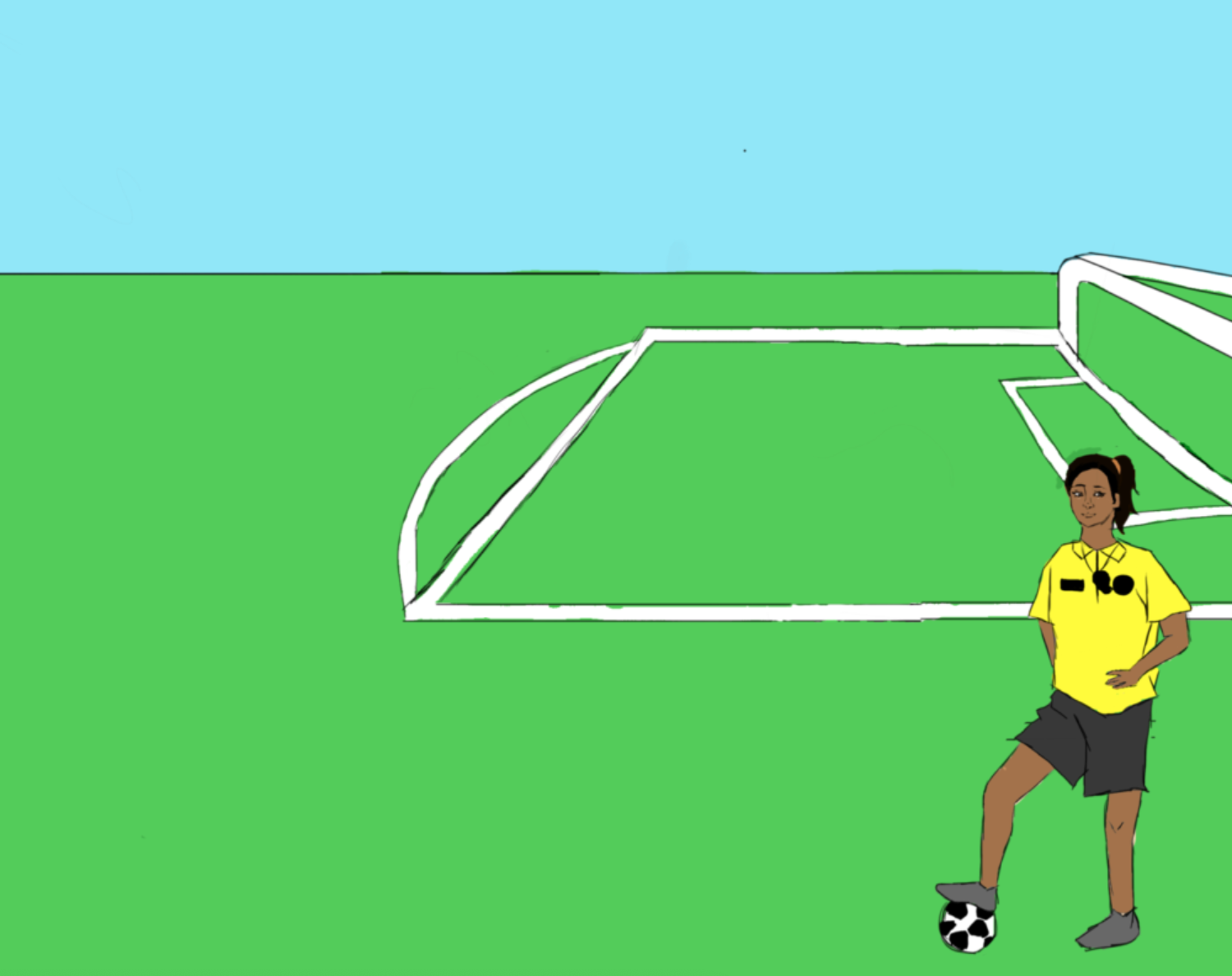The challenges of being a youth soccer referee
September, 2021
Every Sunday morning I wake up and yank my banana-yellow referee shirt over my head. I pull on my knee-high socks that are so long they extend past my thighs. Lastly, I loop my pink whistle around my neck. Although many may not be aware, there are countless challenges that come with being a referee, especially one my age.
One of the biggest challenges a referee faces is dissent from both parents and coaches against the decisions he or she makes. This can come in the form of a more tame “Oh come on, ref!” or some more colorful language. In one case, a coach actually ran onto the soccer field and tried to talk to me while the play had continued. In these cases, it is important to remember two things: abide by the rules of the game and trust your own instincts and judgement. Coaches and parents tend to be biased, and it is more likely that you are correct in your decisions. Even if the parent or coach may be right, it is important to act with confidence in all of your decisions. Especially as a youth referee, you may not be given the same level of trust and respect that older and more experienced referees have. Although that may be the case, younger referees are generally more quick and agile and have better eyesight. These characteristics allow them to follow the game better. The decision of a referee must be made rapidly in the heat of the moment.
At this time, I faced not only dissent against the decisions I was making but also protest against state regulations. One coach on the sideline refused to wear his mask during a time when mask regulations were required for all youth soccer coaches. Again, having confidence and using your voice are of utmost importance in these scenarios.
Another job of a referee is to make sure the game is safe for all children, especially when there are children with different abilities playing. For example, when there was a child with autism on a team, it was important to tell coaches from both teams and ask how best to proceed in case of a sensory overload so everyone is safe and enjoys the game.
These challenges can even come from other referees in the sport. I have been yelled at before by a male co-referee because my shorts were “too short.” As a female referee, I have to admit the outfit has its drawbacks. My shirt is so oversized that when I tuck it in it still billows out from underneath my shorts. I simply could not wear the given shorts as they would fall down if I tried to run. In moments or situations such as these, I find that remaining calm and collected helps when diffusing situations.
Overall, the main job of a referee is to facilitate the game and make sure it runs smoothly. Unlike the players, the goal of a referee is actually to have as little of an impact on the game as possible. Don’t be afraid to speak up against the inequities in the realm of refereeing! We need more young referees in the game.